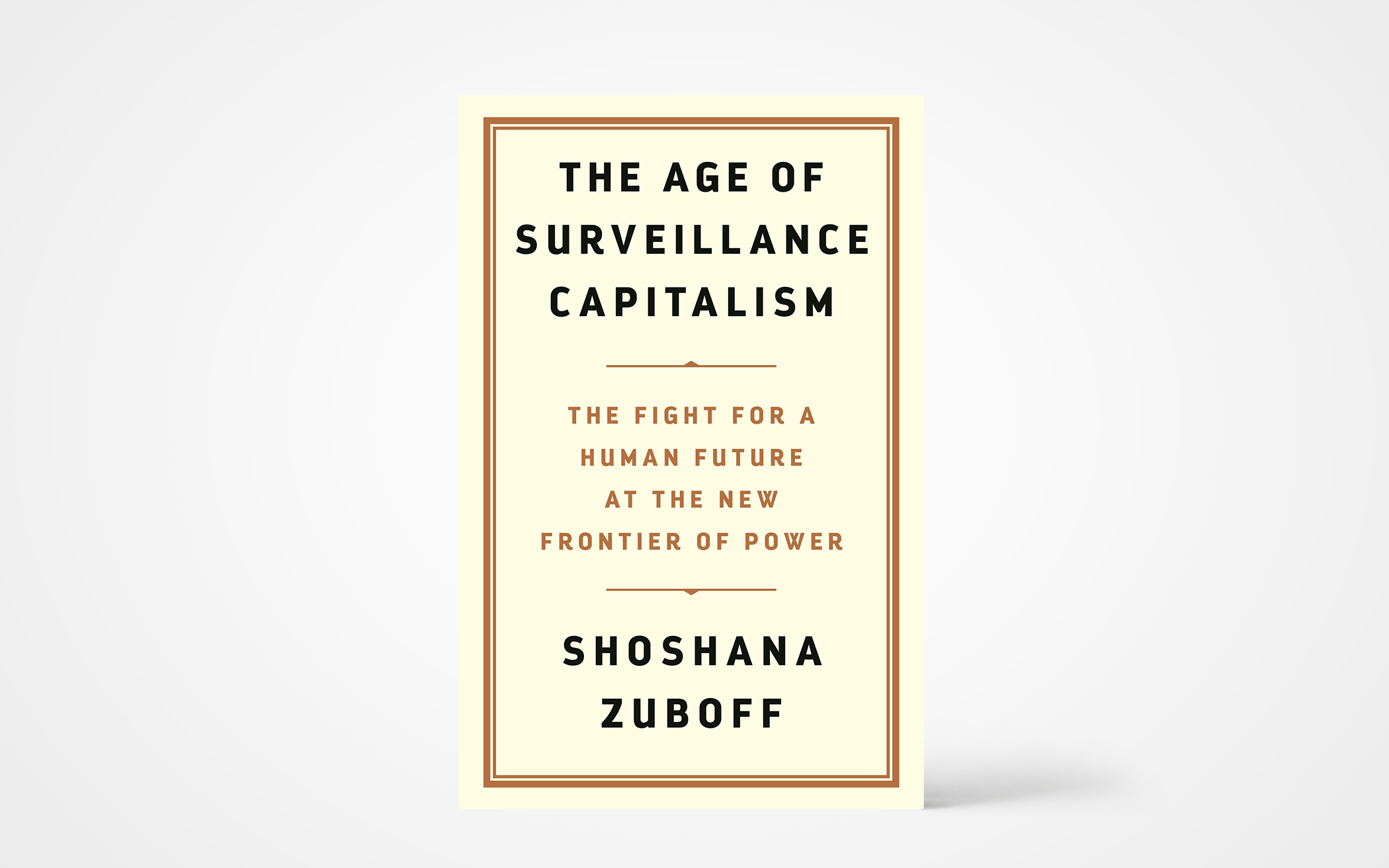The opening creation narratives in Genesis 1-2 lay the foundation for understanding the human capacity for culture-making. Yet, as Genesis 3-11 makes abundantly clear, human beings distort and misdirect this capacity and fill the earth with dehumanizing and dominating idolatry instead. The Old Testament prophets (and even Jesus himself) consistently remind us to wisely discern when our creations gain too much power and begin to dominate us. Then they must be torn down from their thrones for the purpose of renewed human flourishing.
Shoshana Zuboff is a social psychologist and philosopher who taught for over three decades at Harvard’s Business and Law schools. She has been profoundly influential in her study of the digital revolution and how it has shaped capitalism and human society. Her framework for understanding “surveillance capitalism” and “instrumentarian power” are widely regarded as foundational. She is a contemporary prophet for discerning our digital times.
The Age of Surveillance Capitalism: The Fight for a Human Future at the New Frontier of Power, is her career capstone publication, presenting the cumulative insight of her scholarship in just short of 700 pages. Her argument is nothing less than overwhelming.
Surveillance Capitalism (SC) is her term for the new form that capitalism has taken since the digital revolution began. Just as the Ford Motor Company emerged from Industrial Capitalism, so Google and Facebook (what’s called “Big Data”) emerged from SC. Zuboff goes into penetrating detail about a fact we all take for granted today: our devices are watching us. But, she concludes, our devices aren’t just watching us; they’re influencing us, without our awareness, toward market goals. It’s not just that our online behavior is being surveilled; large, powerful, and persuasive corporations are “tuning” and “taming” us to maximize their profits. And just as we’re living with the creation-burning results of Industrial Capitalism, Zuboff argues that the mental illness crisis we’re witnessing among youth and young adults is just the beginning of the disastrous results of SC.
How does “Big Data” pursue SC? Through a new form of power, uniquely suited to the contours and dynamics of SC, what Zuboff terms “instrumentarian power” (IP). IP is the unprecedented extraction of knowledge at totalitarian scale, entirely free from governmental, legal, or societal regulation. IP is a negation of hard-won human rights and an overthrow of individual and local sovereignty. But it is no longer the state that is totalitarian; now it is the market to which we are involuntarily enslaved. Zuboff is clear: the instrumentarian power of surveillance capitalism is a form of tyranny that is anti-democratic at its core.
Zuboff explains how SC has gained so much in so little time. SC offers a utopian vision in which all human problems will be solved. And, as with other societal changes, “Big Data” resorts to the argument that it’s all inevitable anyway. For Zuboff, this argument of SC’s inevitability is merely “the mantra on which we are trained, but it is an existential narcotic prescribed to induce [our] resignation.”
Some critics have pointed out Zuboff’s polemical style throughout the book. It’s clear to the reader that she has an opinion, something that’s quite different from the detached observer/evaluator posture typically recommended for scholars. But, then again, Zuboff closes with a personal reflection on our calling today to “Be the friction” against the momentum of “Big Data.” Otherwise, she cautions, there will be no sanctuary left for human freedom, conscience, and “the pervasive strip search of our lives.”
Canadian scholar-activist Naomi Klein says that “everyone needs to read this book as an act of digital self-defense.” But since Zuboff isn’t the first to sound this alarm, one wonders whether we have ears to hear what the prophets are saying. (Public Affairs).
About the Author
Michael Wagenman is the Christian Reformed campus minister at Western University in London, Ont., where he invites undergraduate students to put their faith into loving service and mentors graduate students. His most recent book is The Power of the Church: The Sacramental Ecclesiology of Abraham Kuyper (Wipf &Stock, 2020).

